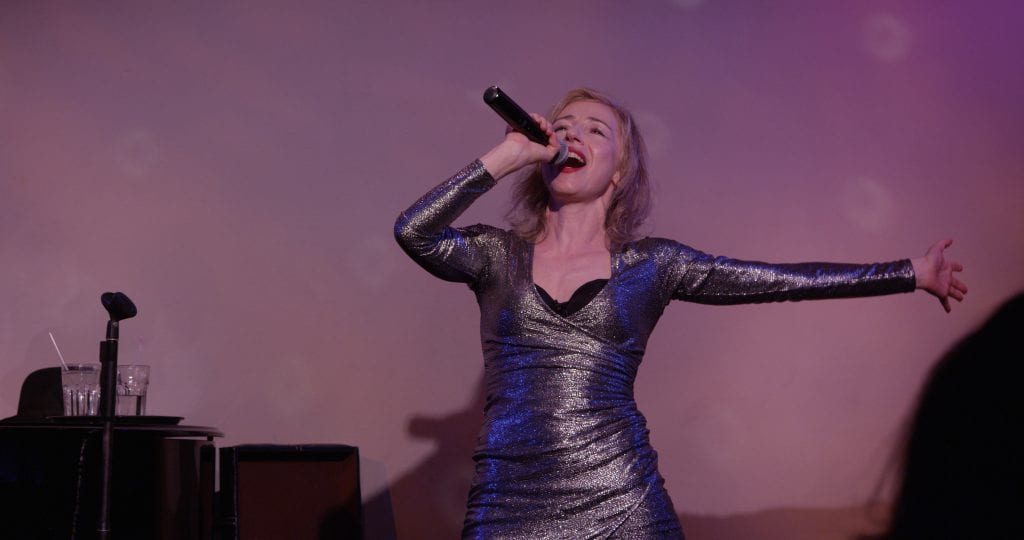In Anna On Fire and Uncensored, her new cabaret act at New York’s venerable, intimate Metropolitan Room, Russian immigrant Anna Fishbeyn takes us through her journey of sexual discovery from childhood, college, early career, marriage, motherhood, through her post-divorce search for just the right kind of casual encounters. We get entertainingly appropriated pop songs, some story, some pretty slinky wardrobe changes, and a lot of frank drive, including several acted out “O mio babbino caro” climaxes. If you like a little sexual razzle-dazzle, a little saltiness in your cabaret, well, this is more like unscrewing the top of the salt shaker and dumping it all out on the plate. But this is truly her topic and mission, and maybe that’s your taste.
For me the best parts were her coming of age experiences, trying to reckon the worldview of her Russian family and her orthodox Jewish schooling with her quest for zipless American fun (which, again, for her is pretty much exclusively about sex). Here her characters were most vivid and fully formed–the savvy mother disdainful of foolishness, the old world grandmother wise in completely traditional female ways, ever fearful of her granddaughter falling into Eternal Whoredom.
It calls to mind the stage work of Margaret Cho, letting us see both U.S. culture and her immigrant family’s values at a comical distance, through the eyes of the Americanized daughter. And while Anna is critical of their judging voices, there is something endearing about how, still, deeply, she wants their love, acceptance, and, maybe impossibly, their celebration of her choices.
Fishbeyn has some chops for writing and pacing, for transitioning between story and song to carry us through an arc. She has a few moves and a fundamentally strong voice, and certainly has guts. But she seems to need vocal coaching to steer her instrument away from screeching and blaring. The over-modulating sound design doesn’t help, lending toward an overall impression that she was performing “at” the audience not “to” or ideally “in the company of”.
With the exception of the whiny upstairs neighbor boy from childhood, her male characters all sound like the same slack-jawed, dead-eyed, vain dude, a possible borrowing from Maria Bamford’s voice catalogue. This lack of individuation fits with her overall preference for nameless, faceless encounters with men, without attachment. It’s a powerful drive for her, celebrated in a spirit of liberation. And it strikes a political chord for her too, because her quest for purely fun, guiltless pleasure is a rejection of any kind of dependence on men. But we don’t get the sense that there are any meaningful connections to any humans in her life, except perhaps to the memories of her Russian mother and grandmother whose judgments and suppressions she lives to free herself from.
She mostly craves freedom, not love, and that’s fine, even radical. And some may resonate with her unapologetic declaration of Independence. But here’s the tricky part: a cabaret act inherently invites you into an intimate relationship with the performer. The quest to live out faceless masturbatory fantasies is intrinsically not intimate.

